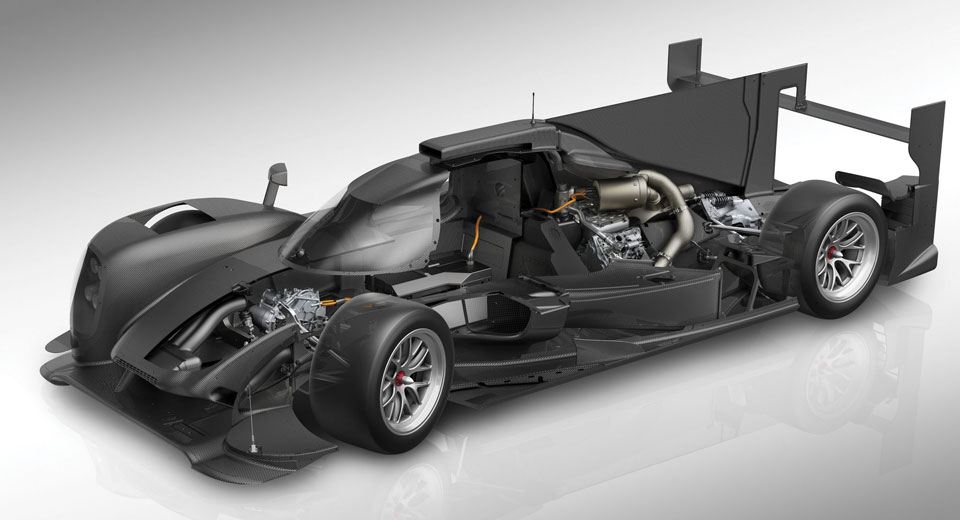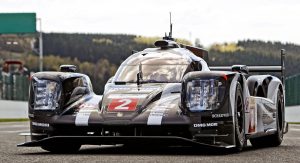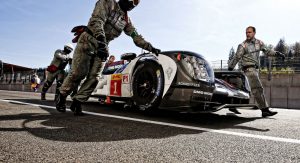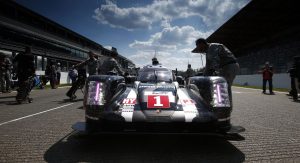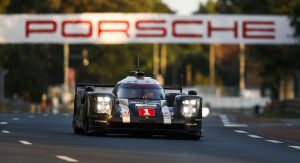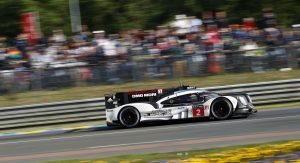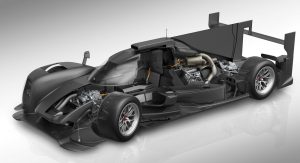On the back of its recent win at the Le Mans 24 Hours, Porsche has released details about how the 919’s advanced hybrid powertrain works.
As we know, the traditional part of the powerplant consists of an advanced V4 engine. Helping to send the racer to almost-unbeatable speeds are then an 800 volt electric system, a large lithium-ion battery and a powerful electric motor generator powering the front wheels.
The V4 alone pumps out a rather ridiculous 500 hp while the electric motor adds an extra 400 hp to that figure. As with other cars in the LMP1 series, the motor generator at the front axle converts the car’s kinetic energy captured by the battery and converts it into electrical energy. A total of 60 per cent of the recovered kinetic energy comes from braking while the remaining 40 per cent is captured via hot exhaust gases from one of the two exhaust pipes.
All of this energy is held in the mid-mounted lithium-ion battery and can be utilized with the simple press of a button in the car’s complex cockpit. On each lap of Circuit de la Sarthe used during Le Mans, the electrical system captures 2.22 kilowatt hours of energy, the equivalent of eight megajoules, the maximum permitted by the regulations. In 2015, Porsche was the only entrant operating in the eight megajoules class. For 2016, Toyota joined it while Audi’s system continues to capture, on average, six megajoules of power per lap at Le Mans.
Last year, Porsche captured the Driver’s championship with Mark Webber, Brendon Hartley and Timo Bernhard. In 2016, the German firm is again leading the championship this time with the team of Marc Lieb, Neel Jani and Romain Dumas.



